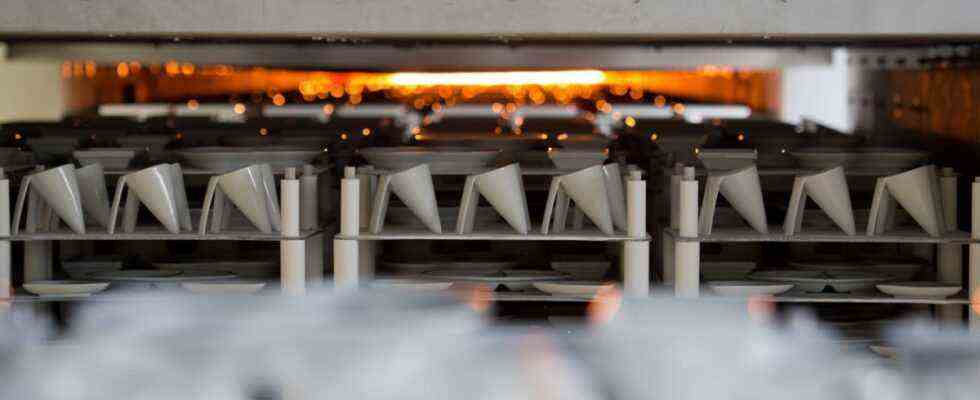Despite the uncertainties caused by the corona pandemic, the porcelain industry is looking to the new year with confidence. Good sales opportunities are expected for 2022, and incoming orders are pointing in a positive direction, said Christoph René Holler, Managing Director of the Association of the Ceramic Industry in Selb in Upper Franconia. The companies started a process of catching up last year and achieved growth in sales: “Private consumption has increased significantly, this is a positive trend.” From January to September 2021, the crockery manufacturers of the association had a turnover of around 209.5 million euros, in the previous year it was almost 190.7 million euros in this period.
There are uncertainties with regard to the location of the hotels and restaurants, because gastronomy is particularly important for the manufacturers of quality porcelain. And: “As in many industries, the increase in raw material costs is a big problem.” Prices for natural gas, which is needed to fire ceramics, continued to rise, Holler said. We have long since stopped dealing with normal price fluctuations on the energy market. The federal government is “unfortunately” currently leaving it open as to how it intends to relieve medium-sized companies in the short term. The association includes 20 crockery manufacturers with around 4,000 employees. There are also almost 30 manufacturers of technical ceramics.
One focus of the industry is in north-eastern Bavaria. One of Germany’s most traditional porcelain manufacturers, Rosenthal, is benefiting from the ongoing trend towards online trading. “E-commerce is performing well,” but stationary retail and the hotel and restaurant sector have been affected by the restrictions imposed by the pandemic, summarized Mads Ryder, who took over the management of Rosenthal last year.
The industry is changing, as Ryder emphasized: You have to come up with ideas “on how the products you buy can be used in a variety of ways. It’s no longer about just selling products. We’re selling inspiration, ideas and lifestyle. People want products with history, tradition, quality and longevity. That’s our trend”. Porcelain is very sustainable – “it lasts a long time and is basically made of water and minerals,” said the Dane, who previously worked for brands Royal Copenhagen and Lenox. The company from Selb attaches great importance to online trading – but when it comes to porcelain, the topic is quite complex. “We’ve been talking about this for years. But the pandemic will accelerate this trend – no doubt about it. Rosenthal has products that you can touch, on the one hand, the tactile experience is very important when buying porcelain,” said Ryder. “But the weight of our products makes them impractical to take and carry around on a day of shopping and you’d rather have the goods conveniently delivered to your home.” Retail is still very important to the company, “but it needs to change in terms of what it does and how it does it.”
The industry must analyze the behavior of consumers even better, and the findings must then flow into product development and communication. “Rosenthal, like much of our industry, was too slow here compared to other industries.” Rosenthal has belonged to the Italian Arcturus Group since 2009.

